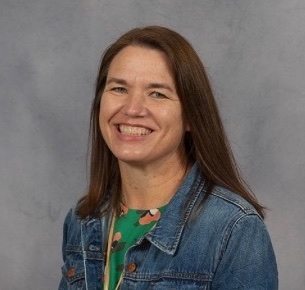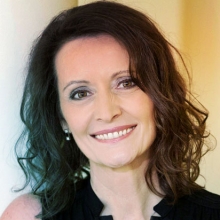Speech Pathologist Becky Lower

Relationships, Relationships, Relationships
Speech Pathologist Becky Lower Sees a Common Career Thread
A degree in speech pathology was not Becky Lower’s original plan when she was accepted at UVA in the late 1980s, but she believes it ended up being the absolute right choice for her. As a career speech pathologist since 1993, her skills have always been in high demand, giving her the flexibility to move around the country, try new things and gain new experiences. What she most loves, though, is that she helps children – whatever the setting – often building relationships that last long after treatment has ended.
A native of southwestern Virginia, Becky didn’t feel like she fit at UVA until she entered the Communication Sciences and Disorders program as a third-year student. She remembers now-retired professors like Ralph Bralley and Ralph Stoudt shepherding a small community of students and faculty, where everyone knew each other, and courses were taught in classrooms rather than lecture halls.
The preparation for diverse work settings she received in the program was another strength she appreciates. “The program didn’t pigeonhole you,” she said. “We were prepared to work in a variety of settings, from medical to private practice to schools, and what I learned was very adaptable across settings.”
After completing her undergraduate degree in 1991, she went on for a master's degree. Since then, she has worked with mostly younger children in public schools and clinical practice settings in Georgia, Colorado and Virginia. From 2014-2016 she taught at the University of Maryland as an assistant clinical professor. In summer 2021 she took on a totally new role as a language fundamentals teacher at The New Community School, a private school in Richmond.
“All of the students are bright kids who are diagnosed with dyslexia or other language-based learning disabilities,” Beckey said. She works with older students, which is also new – ninth to eleventh graders. While her colleagues are trained in reading and special education, she uses her speech-language degree to help students target the roots of their disabilities by working on vocabulary, language comprehension, reading comprehension, oral expression, writing skills, and reading skills.
She believes that the thread tying together all her career experiences and her time at UVA EHD is the importance of relationships. “You can’t teach if you don’t have a connection with students,” she said. “And no matter what the age, learning starts with a relationship.”
Her relationship with UVA remains important to her, of course.
“UVA is such an amazing place to learn,” Becky said. “The education school has always had a reputation for doing great work, not just on Grounds but throughout the state. I’m so proud to have this on the wall,” she added, pointing to the diploma above her head

LaVae Hoffman, associate professor of speech language pathology and program director, notes that today the Communication Sciences and Disorders program admits student cohorts twice the size of those cohorts in the nineties. Yet, it maintains that feel of a smaller program within the context of a nationally prominent research university.
Some life-changing scholarship in the graduate program is also getting attention, Hoffman says, mentioning a couple of stand-out examples: “Dr. Kazlin Mason conducts research using 3D imaging and computational modeling to optimize surgical outcomes with cleft and craniofacial birth defects,” she said. “Meanwhile, Dr. Michaela DuBay researches autism spectrum disorders and is examining parent-child communication patterns among Latinx Spanish-speaking families to determine if there are unique, culturally based patterns of parent input and child language growth.”
Communication skills affect not only learning, but also everyday quality of life. Communicating effectively and effortlessly is a gift that not everyone shares, unfortunately. By helping those who struggle with various speech communication disorders, Speech Language Pathologists, Audiologists and those involved with research provide an invaluable service. Click below to learn more about Speech Communication Disorders.
